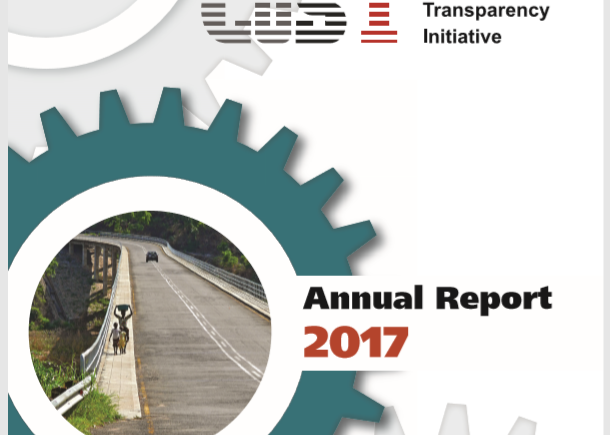Today we publish our Annual Report 2017 which demonstrates how our global impact has been significantly deepened at low cost, with major success seen across our core features of disclosure, assurance and social accountability. We helped to promote data disclosure on 6,356 infrastructure projects – a 67% increase on the amount published in 2016. Sixty-five infrastructure projects were independently reviewed – more than double the amount in the previous year. And we provided training and built the capacity of 2000 individuals from civil society and the media, government and the private sector who participated in over 80 CoST events worldwide.
The Annual Report captures our main achievements and explains why the scale up of disclosure, assurance and social accountability is so necessary. Ultimately, it has led to hundreds of decision-makers understanding they will be held to account and their decisions subject to a new level of scrutiny. In practical terms we point to actions which affirm this understanding and to name just a few these include, the repair of a defective bridge used by many ordinary citizens in Ukraine, improvements to road designs reducing flood risk to homes and businesses in Uganda and the cancellation of a road toll project in Honduras which would have caused a great burden on taxpayers.
The results and impact we had in 2017 required us to develop and move into new key areas, such as innovation through online platforms which had a major impact on disclosure levels, furthering reform efforts through legal mandates on disclosure, research on countries in which we could have a big impact and partnerships across two different communities – the open government community and the infrastructure governance community – with us helping to bring these two together for better open infrastructure outcomes.
Our report details the extent and full impact of our work in each these areas and here are just a few key achievements relating to each area:
-
- Reform – legal mandates on data disclosure in accordance with the CoST Infrastructure Data Standard were established in Costa Rica and Malawi. Many other promising commitments which are likely to lead to sustainable data disclosure were made in Afghanistan, El Salvador and Ukraine.
- Innovation – online disclosure platforms were launched in Malawi and Panama using SISOCs as a basis and rightly so – since 2015, SISOCs has disclosed data on 1,038 projects worth $(US) 882 million and in 2017 it began disclosing data on Public-Private Partnership (PPP) projects.
- Research – In 2017, our members CoST Panama and CoST Uganda published scoping studies demonstrating that their countries’ legal requirements fell substantially short of the CoST benchmark for transparency, both are now using these studies to engage governments and push for change.
- Training and learning – CoST multi-stakeholder groups and national secretariats trained over 1,900 officials on data disclosure – a 262% increase on the previous year. Of the most extensive training was that provided by CoST Guatemala who supported 1,200 officials from 225 local municipalities in nine workshops.
- Building international partnerships – we took part in and helped to organise a number of key events, cementing our relationships with partners, building our profile and sharing our expertise. These events included #OCGlobal17 which brought together over 200 key open government influencers, a C20 event, Africa’s first infrastructure governance roundtable and working with the UK’s DFID to co-facilitate roundtable events.
- Social accountability as a catalyst for change – our members made major strides across our new core feature of social accountability. These included CoST Honduras training journalists to report effectively on infrastructure transparency which supported its assurance process and outcomes and CoST Uganda holding a community meeting where concerns on infrastructure project in Wakiso District were brought by citizens to policy makers and resulted in swift action to improve the project’s delivery.
There is a lot for us to be proud of in 2017 and whilst celebrating we recognise that there is much more work to be done, including expanding to many other countries where open data in infrastructure is an ongoing issue. Additionally, as efforts to address the growing infrastructure deficit focus on new areas, such as public-private partnership investment advocated in particular by the G20, we will also need to work hard to ensure these projects are subject to scrutiny.
We are excited by the prospects that CoST and other initiatives can offer to overcome the challenges before us. The CoST future is one of opportunity to deepen our existing programmes, expand geographically and explore new areas. Some of the ways we are exploring these opportunities include introducing a new and more flexible membership model, launching an ‘Infrastructure Transparency Index’ and a new ‘Open Data Standard for Infrastructure’ in partnership with the Open Contracting Partnership, bringing more high-income countries into the programme, and working with new and existing international partners to strengthen PPP project transparency and accountability. With this in mind, we are optimistic about the future and look forward to reporting further success next year!
